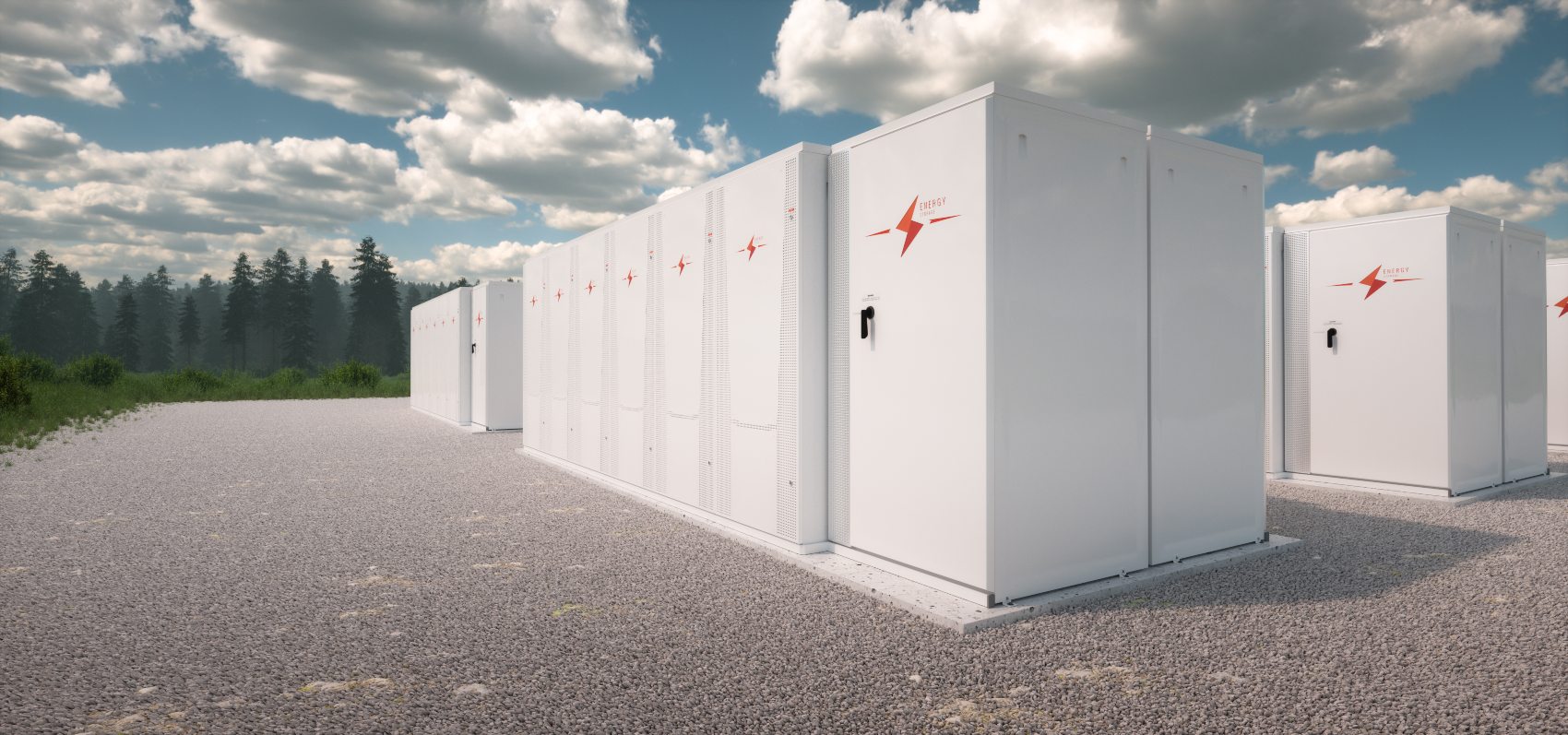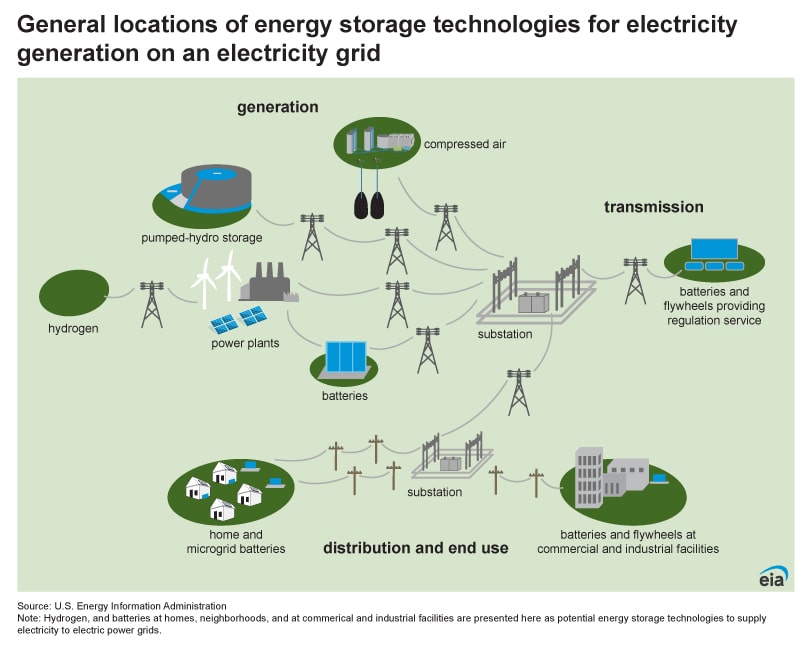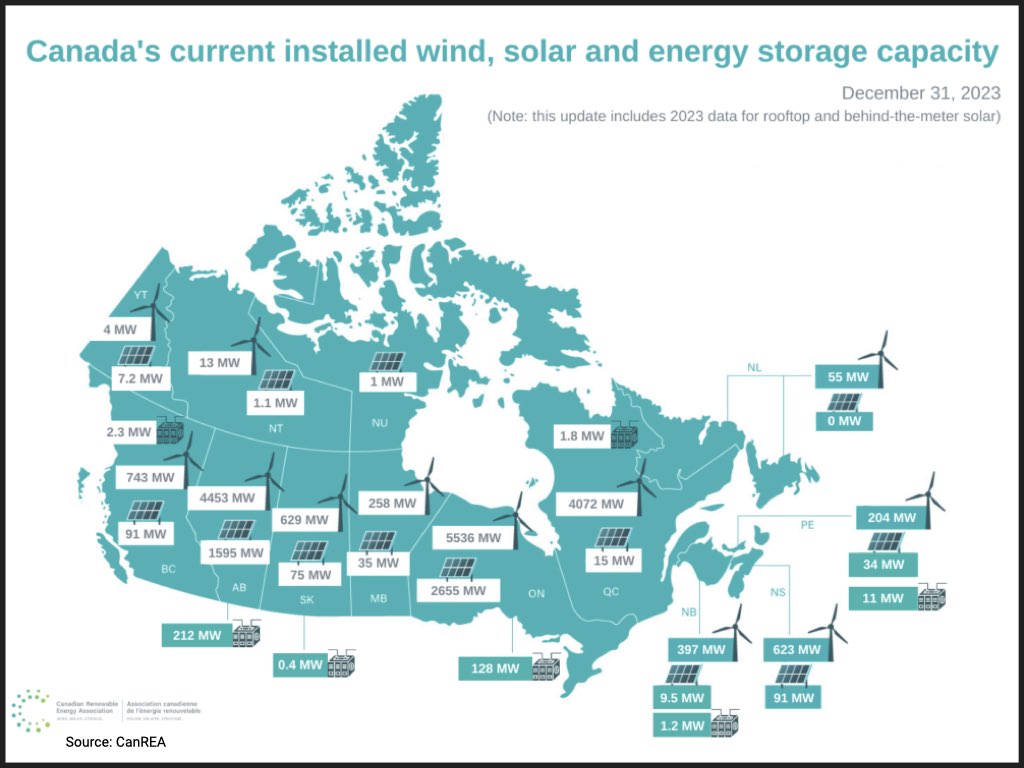Battery Storage: Battery storage is the most widely recognized energy storage method. A battery energy storage system (BESS) operates by receiving electricity from the grid or renewable sources like solar panels, storing it as current, and releasing it when needed. This advanced technology enables energy storage for later use, allowing power system operators and utilities to store and discharge energy as required, providing electricity and grid services as needed. Today, lithium-ion batteries dominate the market due to their high energy density and decreasing costs. The cost of lithium-ion batteries has declined by nearly 90% since 2010, driving increased adoption of battery energy storage systems.
Pumped Hydro Storage: The oldest and most established form of energy storage, hydro storage accounts for nearly 90% of the world’s energy storage capacity. It works by pumping water to a higher elevation during times of excess energy and releasing it to generate electricity when demand is high.
Compressed Air Energy Storage (CAES): CAES uses underground caverns to compress air during off-peak times and release it to generate electricity during peak demand. This technology is less common but can be used for large-scale energy storage.
Thermal Storage: Thermal energy storage involves temporarily storing energy by heating or cooling a storage medium for later use in power generation. It captures heat during periods of excess energy and releases it to generate electricity or provide heating during peak electricity demand. Thermal energy storage systems are often used in conjunction with concentrated solar power systems.
Flywheel Storage: Flywheels are giant wheels that store energy as rotational momentum by spinning at high speeds. When needed, this kinetic energy is harnessed to drive a generator, producing electricity. Flywheels are durable and don’t degrade with frequent charge and discharge cycles, making them ideal for short-term energy storage and balancing loads.
Hydrogen Storage: Hydrogen storage involves converting electricity into hydrogen, which is then stored for later use. Hydrogen can be burned to generate electricity or used in fuel cells to power electric vehicles. This storage method allows for flexible applications and supports renewable energy integration by storing energy during off-peak times for use during peak demand.
Massive Growth of Energy Storage
Energy storage has experienced significant growth in recent years, driven by the increasing adoption of renewable energy sources, the need for grid stability, and advancements in battery technology.
While the global energy storage market is growing, Canada and Ontario have become key regions for energy storage development, with large-scale projects and government support fueling this trend.
Global Perspective
Technological breakthroughs and rapid cost declines have fueled a surge in energy storage deployment worldwide. Bloomberg New Energy Finance reports that in 2023, the global energy storage market nearly tripled, marking the largest year-on-year gain ever recorded. Additionally, the International Energy Agency (IEA) predicts that integrating energy storage will reduce carbon emissions by over 60% by 2050, clearly showing the environmental benefits of large-scale adoption.
These and other recent developments demonstrate how energy storage is being embraced worldwide as an essential component of modern energy systems, enabling more efficient utilization of renewable resources and contributing to decarbonization efforts on a global scale.
Growth in Canada
Canada is transitioning from centralized power generation to more distributed networks. As a result, energy storage is gaining momentum with the adoption of both federal and provincial initiatives that support renewable energy integration. As articulated by the Honourable Jonathan Wilkinson, Canada’s Minister of Natural Resources, “The Government of Canada is pleased to collaborate with partners to unlock the energy storage solutions needed to store clean energy while meeting increasing electricity demands.”
In its recent Pathways to Decarbonization Report, the Independent Electricity System Operator (IESO) highlights the tremendous growth potential for energy storage in Ontario and indicates the need for more ambitious projects fueled by a combination of government support and private-sector investment.
Indeed, the Canadian government has committed to building the country’s largest electricity battery storage project in Ontario, with a 250 MW/1,000 MWh capacity. This and other initiatives have made Ontario the largest battery energy storage capacity in Canada.


